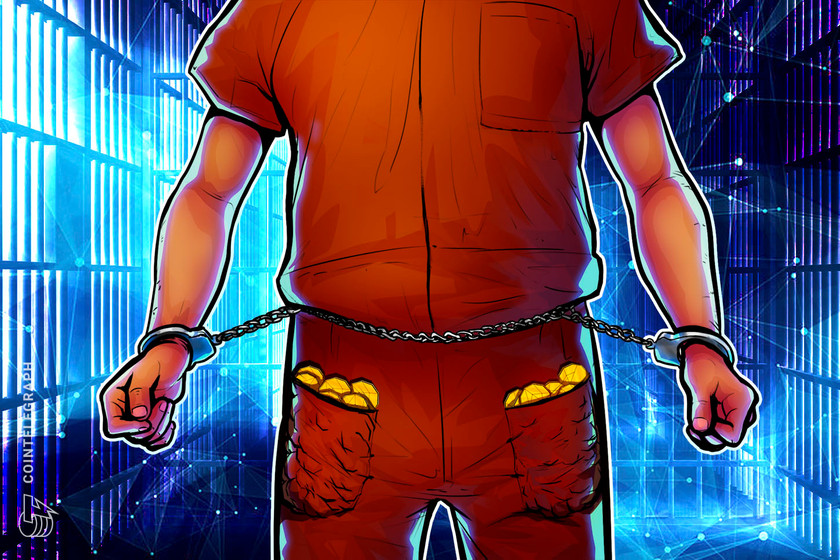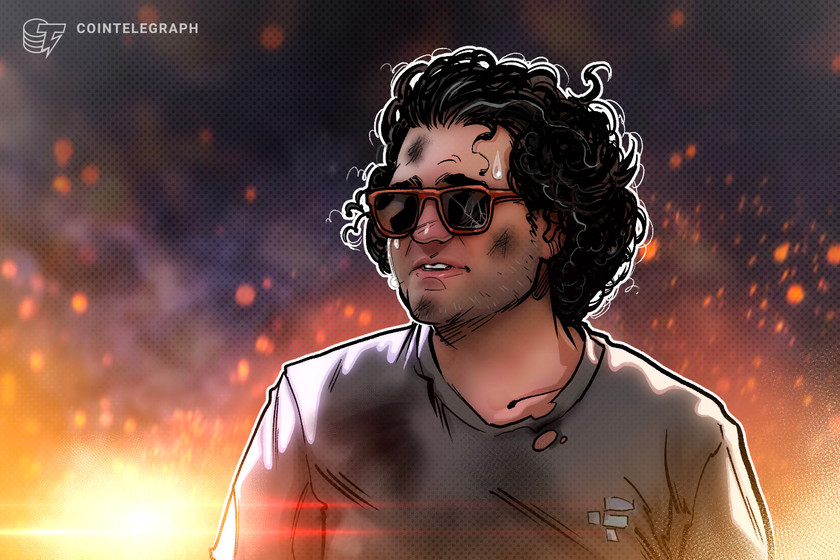OneCoin head of compliance facing 40-year sentence after US extradition


The alleged fraudster was accused of doing the “exact opposite” of her job title, which was to ensure OneCoin was complying with laws.
United States federal prosecutors have charged a former executive of the fraudulent cryptocurrency scheme OneCoin for her role in the operation. Irina Dilkinska now faces up to 40 years in prison after being extradited from Bulgaria.
On March 21, the Department of Justice charged Dilkinska — OneCoin’s former head of legal and compliance — with one count of wire fraud and one count of conspiracy to commit money laundering. Each count carries a maximum potential sentence of 20 years in prison.
Dilkinska allegedly aided in laundering over $400 million of OneCoin’s proceeds, and upon hearing of a co-conspirator’s arrest destroyed incriminating evidence and sent incriminating messages.
Bulgarian woman charged for role in multi-billion-dollar cryptocurrency pyramid scheme “OneCoin” and extradited from Bulgaria to the United Stateshttps://t.co/XsY0rYJWeF
— US Attorney SDNY (@SDNYnews) March 21, 2023
U.S. Attorney Damian Williams pointed out the irony in Dilikinska’s job title given the nature of OneCoin, saying:
“Irina Dilkinska, the supposed Head of Legal and Compliance for the OneCoin cryptocurrency pyramid scheme, accomplished the exact opposite of her job title and allegedly enabled OneCoin to launder millions of dollars of illegal proceeds through shell companies.”
The announcement said Dilkinska was extradited from Bulgaria on March 20 and was set to appear before U.S. Magistrate Judge Sarah Netburn the following day.
OneCoin was founded in 2014 by “cryptoqueen” Ruja Ignatova and Karl Sebastian Greenwood, with the latter facing up to 60 years in prison after pleading guilty in December to multiple charges.
Related: DOJ and SEC to probe SVB collapse and insider stock sales: Report
Ignatova, however, has managed to evade law enforcement agencies, going missing in October 2017 after a flight to Greece just 15 days after a federal warrant was issued for her arrest.
In 2014, a woman named Ruja Ignatova launched a fake cryptocurrency named “OneCoin”. Despite the currency never existing, Ruja convinced people all over the world to invest. In 2017, after raking in $4 billion profit, she boarded a plane to Greece and hasn’t been seen since. pic.twitter.com/DoJCfmy0Uj
— Facts – Weird & Interesting (@info_tale) March 15, 2023
In June 2022, Ignatova was added to the Federal Bureau of Investigation’s Top Ten Most Wanted List, and a $100,000 reward is offered for information leading to her arrest.
OneCoin was exposed as a scam back in 2015 but managed to generate over $4.3 billion in revenue, with profits of nearly $3 billion between Q4 2014 and Q4 2016 alone.
Related: Best and worst countries for crypto taxes — plus crypto tax tips





